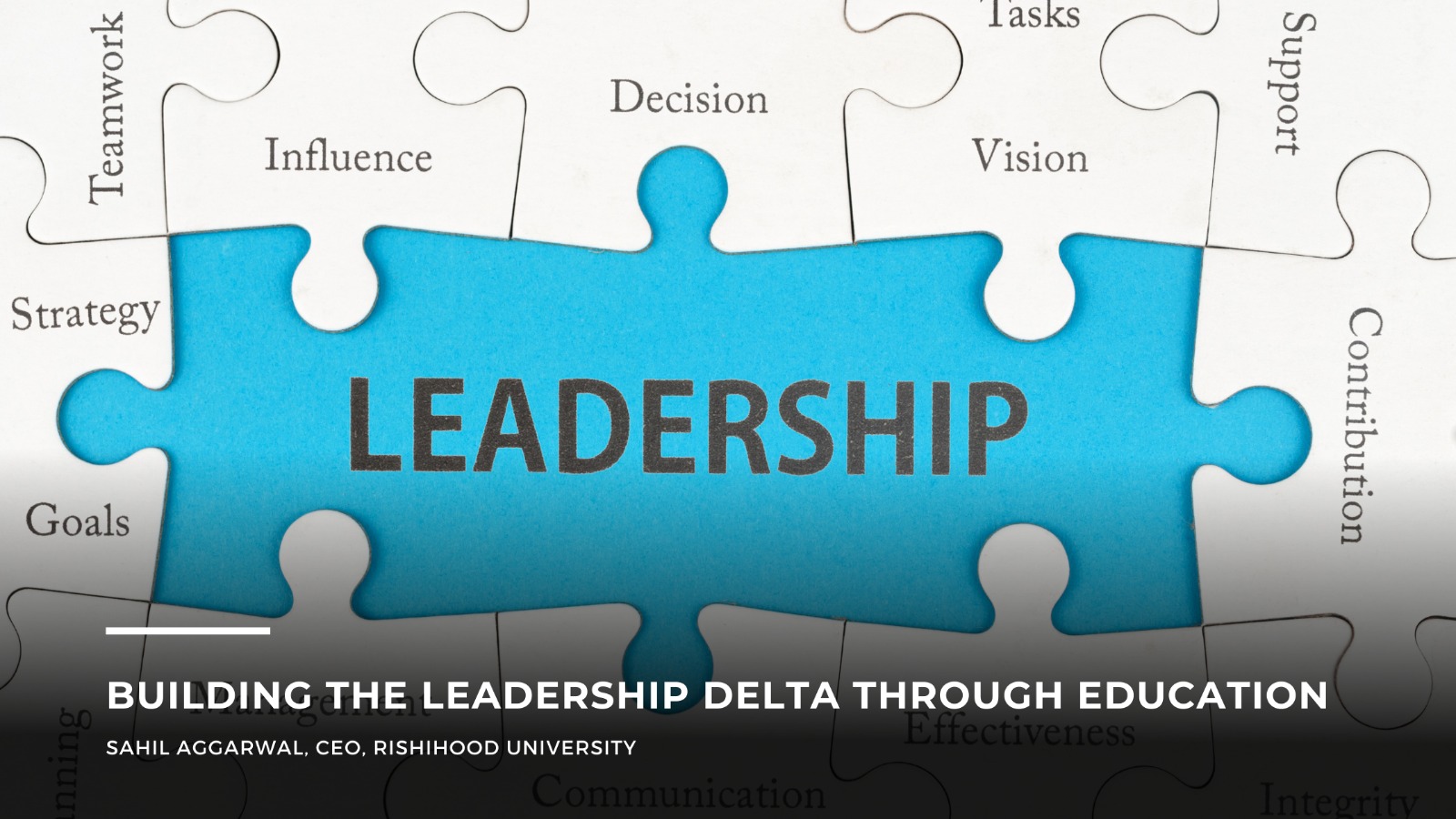Leadership is not just a quality that some are born with, but rather a trait that can be nurtured and developed. This semester, I am teaching two courses that involve leadership and I am reflecting on my own approach to leadership education. I like to call this the Leadership Delta – the difference between where a learner starts and where they can potentially reach in terms of their leadership abilities. Moving a step further in this journey is the ‘delta’.
To build the leadership delta, I take a three-pronged approach:
Excite Them
The first is to excite our learners about leadership. They would want to learn leadership once they get excited about it. We do this by showcasing role models who have excelled in their personal and professional lives through their leadership qualities, including spiritual leaders, entrepreneurs, politicians, social workers, parents, corporate professionals, and more.
We also highlight the outcomes of effective leadership, such as improved team morale, increased productivity, and achieving common goals. For example, we covered the story of Thunderbolt, an Israeli counter-terror operation, and the people who led the operation. Decision-making and courage were clearly evident leadership traits that led to a successful operation against all odds. Listening to the story created excitement about leadership qualities. This instills a sense of purpose and motivation in my learners, encouraging them to strive towards becoming effective leaders themselves.
Make them Comfortable
The second approach is to build comfort with leadership. Leadership is not just about taking charge and being in control, but also about being able to work collaboratively with others. To help learners become more comfortable in leadership roles, we must put them in situations that require them to demonstrate leadership, such as group projects or team-building exercises. We also conduct role plays that simulate real-life scenarios, allowing learners to practice leadership skills in a safe and controlled environment.
The curriculum is a way of doing but so is pedagogy. In a course on global grand challenges that aims to sharpen the learners’ perspective towards problem-solving and leadership, I asked them to peer-review their assignments. The learners were graded based on both the quality of writing of their own assignments and the quality of review of their peer’s assignments. Being in this situation helps them feel more responsible, an important leadership trait. If we keep putting the learners through situations that ask them to demonstrate leadership, they naturally start feeling comfortable with it. My own growth has happened and continues to happen when I have to get into situations that demand more of me.
Make them Capable
The third and final approach is to increase the ability to lead. This involves providing my learners with the perspectives, methods, and skills needed to become effective leaders. I use various teaching methods such as case studies, discussions, and guest lectures to expose my learners to different leadership styles and techniques. We also look at decision-making frameworks that help them in their personal and professional life. For example, I have often used Ikigai and purusharth as a way of thinking about careers and life when I counsel young learners.
I am using books as a medium to dive into the stories of great leaders like Subhash Chandra Bose and extract lessons from their lives. Another aspect is to hone problem-solving skills by providing a problem statement and a framework to solve it. I often use this in workshops on entrepreneurship to plan business models. This helps the learners to develop a better understanding of what it takes to be a successful leader and equips them with the necessary tools to lead effectively.
So, my approach has been to first excite them so that they want to build their leadership delta. Once they want it, then we make them comfortable thinking about being in leadership roles. And finally, we give them the tools and techniques to exercise leadership when they really face it. Rishihood is an impact-university and we are thrilled to work with our learners to improve the gross leadership product of our society.
– Sahil Aggarwal, CEO, Rishihood University

